Author:Florence Earle Coates/Index of Titles
Jump to navigation
Jump to search

Poems (1898) 
Mine and Thine (1904) 
Lyrics of Life (1909) 
The Unconquered Air (1912) 
Poems Vols. I & II (1916) 
Pro Patria (1917) 
Fugitive verse 
After, as folded card from the Laurel Series, ca. 1910's. 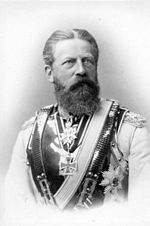
Frederick (1889) 
Perdita (on Seeing Miss Anderson in the Rôle) (1889) 
By the Conemaugh (1889) 
Alexander III (1898) 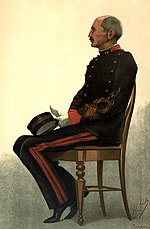
"Dreyfus" (1898, 1899), and "Le Grand Salut" (1906) 
Picquart (1902) 
Du Maurier (1898) 
Greatness (1898) 
There's a Spot in the Mountains (1898) 
Pilgrim Song (pre-1900): set to music as "The Pilgrims" in 1900 
Rouen: In the Prison of Joan of Arc (1900) 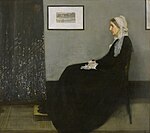
James McNeill Whistler (1903) 
Old St. David's (1904) 
Breathless We Strive (1904) 
Helen Keller with a Rose (1905). This image inspired the poem. 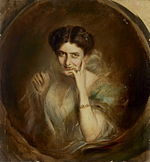
On the Death of Lady Curzon (1909) 
To Alice Meynell (1912) 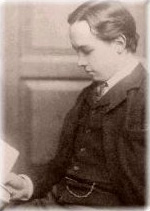
To R. R. (On Rereading the "De Profundis" of Oscar Wilde) (1912) 
In Remembrance: The Antarctic Heroes of 1912 (or, To Britannia) 
Place de la Concorde (1914) 
The "Penseur" (1916) 
To Sappho Dead (1916) 
Rheims (At the Ruined Cathedral) (1916) 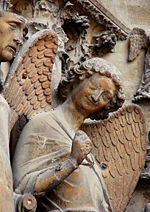
The Smile of Reims (1917) 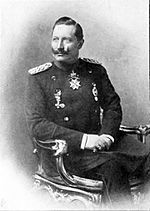
The Kaiser (1917) 
The Union of the Flags The French High Commission visits Philadelphia on 9 May 1917. 
As They Leave Us (1918) 
Captain Guynemer (1918)




































A
[edit]- Ab Humo 1909 | 1916
- Achilles 1898 | 1916
- Adieu 1898 | 1916
- An Adieu 1916
- Adonis 1904 | 1916
- Affinity 1909 | 1916
- After[1] 1909 | 1916
- After the Paintings by George F. Watts: I. Love and Death II. Love and Life 1909 | 1916
- After the Play 1909 | 1916
- Against the Gate of Life—To Helen Keller 1912
- Alexander III (Livadia, November 1, 1894) 1898 | 1916
- The All-Mother 1916
- Alms 1904 | 1916
- America 1917 (Patient she is—long-suffering, our Land;)
- America[2] 1904 | 1916 (Thy children are inspired by thee:)
- America Speaks[3] 1917
- An American at Lincoln 1909 | 1916
- The American People to the Allies[4] 1917
- Amor Creator 1909 | 1916
- An Appeal 1916
- The Angelus—Jean-François Millet, 1814-1875 (see Jean-François Millet)
- April 1909 | 1916
- Art 1898 | 1916
- Art and War 1916
- As from Afar[5] 1904 (To see thee, hear thee, wistful watch I keep—) (same as Nature, 1916)
- As They Leave Us (fugitive 1918)
- "Ask what you will" 1904 | 1916
- At Break of Day 1898 | 1916
- At Dusk 1904 | 1916
- At Easter[6] 1904
- At Eden's Gate (see The Cherubim)
- At The Sarah-Bernhardt Theatre 1904 | 1916
- Autumn 1904 | 1916 (In her arms unconscious lying,)
- Autumn 1898 | 1916 ("We ne'er will part!" Ah me, what plaintive sounds)
B
[edit]- A Ballad of a Drum 1904 | 1916
- The Band of the Titanic 1912 | 1916
- Base-Born 1912 | 1916
- Be Thou My Guide 1898 | 1916
- Beatrice before Death[7] 1916
- Beauty's Path 1909 | 1916
- Beethoven 1904 | 1916
- Before the Dawn 1909 | 1916
- Before the Hour 1898 | 1916
- Belgium (fugitive 1918)
- Benjamin Franklin 1909 | 1916
- Bereft 1909 | 1916
- Beside a Pleasant Shore 1909 | 1916
- Betrothal 1904 | 1916
- Better to Die 1912 | 1916 | 1917
- Beyond 1909 | 1916
- "Blessèd" 1904 | 1916
- The Brave (fugitive 1915)
- Breathless We Strive 1904 | 1916
- Britannia 1916
- Brook-Song: To the Spring 1904 | 1916
- Buffalo (September 6, 1901) 1904 | 1916
- The Burial of Robert Louis Stevenson at Samoa 1904 | 1916
- By the Conemaugh (May 31, 1889) 1898
C
[edit]- Captain Guynemer (fugitive 1918)
- A Cathedral—All Saint's Day in the Great North Woods 1912 | 1916
- Cendrillon[8] 1912 | 1916
- "Che Faro Senza Eurydice!" (see Eurydice)
- The Cherubim 1916
- The Child and the Heart Bereft 1916
- Child-Fancies: I. Asphodel II. Gathered Wild-Flowers 1909
- The Chosen 1912 | 1916
- The Christ of the Andes 1909 | 1916
- Christmas Eve 1916
- The Chrysanthemum 1898
- Civilization 1904 | 1916
- The Clouds 1904 | 1916
- Columbus 1898 | 1916
- Combatants 1898 | 1916
- Compensation[9] 1904 | 1916
- The Comrade (fugitive 1918)
- Conflict and Rest 1909
- Conscience 1898 | 1916
- Cora 1898 | 1916
- Coronation—To King Edward VII 1904
- Courage 1909 | 1916
- Cradle Song 1904 | 1916
- Crippled 1904 | 1916
- Cruel Love—Anacreontic 1909 | 1916
- Cupid and the Muses 1912 | 1916
D
[edit]- Däi Nippon 1909 | 1916
- Daphnis 1898 | 1916
- Dawn 1912 | 1916
- Dearth 1909 | 1916
- Death 1898 | 1916
- Deathless Death—In Memory of Richard Watson Gilder 1912 | 1916
- A Débutante 1898
- Delilah 1904 | 1916
- Demeter 1904 | 1916
- A Descant 1898 | 1916
- The Difference 1904
- Didst Thou Rejoice? 1898 | 1916
- Ditty: "My True Love's Eyes" 1898 | 1916
- Divination 1912 | 1916
- The Dream Beautiful (see My Dream)
- Dream the Great Dream 1912 | 1916
- Dreyfus (fugitive 1899) (If thou art living, in that Devil's Isle)
- Dreyfus 1904 (France has no dungeon in her island tomb)
- Dryad Song 1898 | 1916
- Du Maurier 1898 | 1916
E
[edit]- "Each and All" 1909
- Eagles—Gibert's Battle for the Air 1912 | 1916
- Earth Has Her Blossoms (see Earth's Blossoms)
- Earth's Blossoms[10] 1909 | 1916
- Earth's Mystery[11] 1909 | 1916
- Easter 1898 | 1916
- Éastre 1912 | 1916
- Echo Consolatrix 1909 | 1916
- Edmund Clarence Stedman 1904 | 1916
- The Empty House 1909 | 1916
- Eros 1912 | 1916
- Eurydice[12] 1909 | 1916
- Every Heart 1916
- Every Night at Marathon[13] 1912 | 1916
- Exaltation—After the French of Victor Hugo 1912 | 1916
F
[edit]- Fairer Than Violets Are 1912
- A Farewell 1909 | 1916
- Father 1912 | 1916
- First and Last 1898
- For France (fugitive 1918)
- For Joy 1916
- For the Birthday of William Dean Howells (March 1, 1912) 1912
- Frederick (fugitive 1889)
- Friends to Virtue 1898 | 1916
- Fritz Scheel—A Tribute 1909
- The Frogs—A Concert in the Marsh 1916
G
[edit]- Gifts 1904
- Give Me Not Love 1904 | 1916
- Giving Thanks (fugitive 1917)
- "Go not too far" 1904 | 1916
- The Gods Remember (fugitive 1916)
- Le Grand Salut[14] 1909 | 1916
- Greatness 1898 | 1916
H
[edit]- He and I 1898 | 1916
- The Heart of Love 1898 | 1916
- Heimweh 1912
- Heart-Room 1916
- Helen Bell (see Winter the Nursery for Spring Flowers)
- Helen Keller with a Rose 1909 | 1916
- Henry James 1916
- Henry V[15] 1916 (same as Ode on the Coronation of King George V, 1912)
- Henry Wadsworth Longfellow (1807-1882) 1909 | 1916
- The Hermit 1909 | 1916
- A Hero 1909 | 1916
- His Face 1912 | 1916
- Homeward 1898 | 1916
- Honor 1909 | 1916
- "Honor, not Honors" 1909 | 1916
- The Hospital: I. In the Maternity Ward II. In the Surgical Ward[16] 1912 | 1916
- The House of Pain 1909 | 1916
- How Long? (fugitive 1917)
- How Wonderful is Love 1912 | 1916
- Hylas 1898 | 1916
I
[edit]- I Heard a Voice 1916
- I know not how to find the Spring 1904 | 1916
- "I Longed for Love" 1904 | 1916
- I Looked on Sorrow (see Earth's Mystery)
- I Too Have Loved (fugitive 1919)
- The Ideal 1898 | 1916
- An Idle Ditty 1912 | 1916
- An Idler 1898 | 1916
- Immortal 1898 | 1916 (Life is like a beauteous flower,)
- Immortal 1912 | 1916 (How living are the dead !)
- In a College Settlement 1898 | 1916
- In a Tenement 1912 | 1916
- In April 1898 | 1916
- In Darkness 1898 | 1916
- In Dreamland 1912 | 1916
- In Loneliness—Iseult of Brittany 1912 | 1916
- In Memory—Eliza Sproat Turner 1904
- In Memory of an American Soldier (fugitive 1919)
- In Memory of Caroline Furness Jayne 1909 | 1916
- In Memory of Henry La Barre Jayne (fugitive 1920)
- "In Memory of Jean"[17] 1916
- In Modern Bonds 1912
- In Pathetic Remembrance—E. N. W., Author Of "David Harum" 1904
- In Plains of Picardy (fugitive 1918)
- In Remembrance : The Antarctic Heroes of 1912 (see To Britannia)
- In the Maternity Ward (see The Hospital)
- In the Offing (fugitive 1917)
- In the Town a Wild Bird singing 1912 | 1916
- In the Wood 1898 | 1916
- In War-Time—Gazing Seaward 1916
- In War-Time—An American Homeward Bound 1916
- In Winter 1898 | 1916
- In Winter-Time 1904 | 1916
- India 1898 | 1916
- Indian-Pipe 1909 | 1916
- The Infantry that Would Not Yield (fugitive 1918)
- Influence 1909 | 1916
- Inheritor 1909
- Interchange 1904 | 1916
- Inviolable 1916
- The Irish Shamrock in South Africa 1904 | 1916
- Israfel 1898 (as Israphel) | 1916
J
[edit]- James McNeill Whistler 1904 | 1916
- Jean-François Millet[18] 1904 | 1916
- Jewel-Weed 1916
- Joan of Arc 1904 | 1916
- John Hay 1909
K
[edit]- The Kaiser (fugitive 1917)
- Keats—A Sonnet 1912 | 1916
- Keats to Fanny Brawne (see Let Me Believe)
- Kenilworth 1904 | 1916
- Kindred 1909 | 1916
L
[edit]- Lament of Brünhilde 1898 | 1916
- L'Amour fait Peur 1909 | 1916
- The Lark 1909 | 1916
- The Land of Promise 1898 | 1916
- Last Night I dreamed 1912 | 1916
- Leaders of Men 1909 | 1916
- Leave-taking 1909 | 1916
- Let Me Believe 1898 | 1916
- The Liberty-Bell (Sent from Philadelphia to Atlanta, October 4, 1895) 1898
- Life 1898 | 1916 (Before we knew thee thou wert with us; ay,)
- Life 1898 | 1916 (Thou art more ancient than the oldest skies,)
- Limitation 1898 | 1916
- Lines for a Fiftieth Anniversary 1912
- The Little Lass—An Old-Time Ditty 1898 | 1916
- A Little Minister 1904 | 1916
- A Little Song 1909 | 1916
- Live Thy Life 1916 | 1917
- Longing 1898 | 1916
- The Lordly Pines 1916
- The Lost Gioconda 1912
- Love and the Child 1912 | 1916
- Love Conquers Death 1898 | 1916
- Love, Dost Thou Smile? 1909 | 1916
- Love Has No Foes 1898 | 1916
- Love is Passing 1912 | 1916
- Love never is Too Late 1909 | 1916
- The Love of Life 1912
- Love, Reproachful 1904 | 1916
- Love Sailed at Morn 1898 | 1916
- Love that Faltered 1904 | 1916
- A Lover's "Litany to Pan" 1912 | 1916
- A Love-Song (fugitive 1917)
- A Lowly Parable 1909
- Lullaby 1912 | 1916
M
[edit]- Ma Belle 1898
- Madonna 1904 | 1916
- A Maid's Defence[19] 1898 | 1916
- Man 1898 | 1916
- Man, That Will Not Be Beguiled 1916 (same as Unrest, 1904)
- The Man-Soul 1912 | 1916
- Mars—1907 1909 | 1916
- The Martyr Jews 1909
- Masefield (fugitive 1922)
- McKinley (fugitive 1901)
- Mediæval 1916
- A Meeting in the Forest 1916
- Memoria 1898 | 1916
- Memorial Ode[20] 1904 | 1916
- Memory 1904 | 1916
- Mid-Ocean 1909 | 1916
- Might I Return 1898 | 1916
- The Mirror 1909 | 1916
- Morning 1898 | 1916
- The Morning Glory 1912 | 1916
- Mother 1909 | 1916
- Mother-Love 1909 | 1916
- Mother Mary 1912 | 1916
- Motherless 1904 | 1916
- The Mourner (fugitive 1914)
- Music 1898 | 1916
- My Country 1904
- My Dream 1904 | 1916
- My True-Love's Eyes (see Ditty: "My True Love's Eyes")
N
[edit]- Nansen 1898 | 1916
- A Narrow Window 1912 | 1916
- Natura Benigna[21] 1916 (I weave the beginning, I fashion the end;) (same as Nature, 1904)
- Nature[22] 1904 (I weave the beginning, I fashion the end;) (same as Natura Benigna, 1916)
- Nature[23] 1916 (To see thee, hear thee, wistful watch I keep—) (same as As from Afar, 1904)
- Near and Far 1898 | 1916
- The Nest 1916
- The New Mars 1916
- New York—A Nocturne 1916
- No More (see No More, Dear Heart)
- No More, Dear Heart[24] 1912 | 1916
- Nocturne 1909 | 1916
- Nothing that can die 1916
O
[edit]- O Giorno Felice! 1912 | 1916
- October 1898 | 1916
- Ode on the Coronation of King George V[25] 1912 (same as Henry V, 1916)
- Ode to Silence 1912 | 1916
- Of Future Days 1904 | 1916
- Of Love 1909
- Old St. David's[26] 1904 | 1916
- Omar 1912
- On a Poet too early Dead 1916
- On Finding Buddha's Dust[27] 1912
- On Re-reading "The Sick King in Bokhara" (fugitive 1886)
- On the Death of Lady Curzon (July 17, 1906) 1909 | 1916
- Once in a Still, Sequestered Place 1912 | 1916
- Onward (see Per Aspera)
- An Optimist 1904 | 1916
- The Orchestral Leader 1912
- Our Land (fugitive 1919)
P
[edit]- Paris 1904
- The "Penseur" (On Seeing the Famous Statue) 1916
- Per Aspera[28] 1909 | 1916
- Perdita (on Seeing Miss Anderson in the Rôle) 1898 | 1916
- Persephone 1904 | 1916
- Philistia 1904
- Picquart 1904 | 1916
- The Pilgrim 1909 | 1916
- Pilgrim Song 1904 | 1916
- Pilgrimage 1898 | 1916
- Place de la Concorde (August 14, 1914)[29] 1916
- Poems: After George F. Watts[30] (see After the Paintings by George F. Watts)
- The Poet 1909 | 1916
- Poetry[31] 1898 (One spot of green, watered by hidden streams,) (same as To the Muse, 1916)
- Poetry 1909 | 1916 (Contemplative and fair, with look divine,)
- The Poetry of Earth 1912 | 1916
- Poor Icarus[32] 1912 | 1916
- "Poor Love!" said Life 1904 | 1916
- President M'Kinley (see McKinley)
- Privilege 1909 | 1916
- Probation 1898 | 1916
- Psyche 1898 | 1916
R
[edit]- A Realm of Wonder[33] 1912 | 1916
- The Red and the Blue 1909 (Words and music by Florence Earle Coates)
- Rejected 1898 | 1916
- Renewal 1904 | 1916
- Reproach not Death 1909 | 1916
- Requiem for a Young Soldier 1916
- Retrospect 1909 | 1916
- The Return[34] 1904 | 1916
- The Return of Proserpine 1912 | 1916
- Reveille 1898 | 1916
- Rhapsody 1898 | 1916
- Rheims (At the Ruined Cathedral) 1916
- Robert Browning 1912 | 1916
- Romance 1916
- A Rose 1898 | 1916
- Rouen: In the Prison of Joan of Arc 1904 | 1916
- A Round 1916
- A Russian's Prayer for his Horse, before going into Battle (A Paraphrase) 1916
S
[edit]- Saint Theresa 1909 | 1916
- Sappho 1898 | 1916
- A Secret 1916
- Secure[35] 1912 | 1916
- Sedan (fugitive 1917)
- A Seeker in the Night 1912 | 1916
- Self-confident Youth 1916
- "The Sense of Tears in Mortal Things" 1909 | 1916
- Serbia (fugitive 1918)
- Shakespeare 1916
- She will not hear 1916
- Siberia 1898 | 1916
- The Singer 1916 (He came to us with dreams to sell—) (same as A Traveller from Altruria, 1909)
- Sleep 1916
- The Smile of Reims (fugitive 1917)
- "So War has Begun" 1904 | 1916
- So you love me 1912 | 1916
- Socrates 1904 | 1916
- A Soldier (fugitive 1918)
- Song: "For Me the Jasmine Buds Unfold" 1898 | 1916
- Song: "Friendship from its Moorings Strays" 1898 | 1916
- Song: "Her Cheek is Like a Tinted Rose" 1898 | 1916
- Song: "If Love Were But a Little Thing" 1909 | 1916
- Song: "If Love Were Not, the Wilding Rose" 1898 | 1916
- Song: "Love never is too late" (see Love never is Too Late)
- Song: "My Love is Fairer than the Tasselled Corn" 1912 | 1916
- Song: "The New-Born Leaves Unfolding Fast" 1898 | 1916
- Song: "Sweet is the Birth of Love" 1909 | 1916
- Song of Life 1904 | 1916
- A Song of the Red and the Blue (see The Red and the Blue)
- The song that is forgot 1912 | 1916
- Stanza: "The Voices of All Waters" 1898 | 1916
- The Summer-Time is in the Rose 1912 | 1916
- The Sun-Dial 1909
- Suppliant 1898 | 1916
- Survival 1898 | 1916
T
[edit]- Tennyson 1898 | 1916
- Thanksgiving 1909 | 1916 (Now gracious plenty rules the board,)
- Thanksgiving (Thou that dost save through pain,) (see Giving Thanks)
- Their Victory Won (fugitive 1918)
- There's a Spot in the Mountains 1898 | 1916
- They live so long 1916
- They told me 1912 | 1916
- Thomas Bailey Aldrich (1836-1907) 1909
- Though Thou Hast Climbed 1898 | 1916
- Through the Rushes 1898 | 1916
- Through the Window 1912 | 1916
- Time 1916
- The "Titanic"—Aftermath 1912
- To a Poet 1916
- To Alice Meynell 1912
- To Britannia[36][37] 1916
- To England 1904 | 1916
- To France (1894) 1898
- To Helen Keller 1904 | 1916
- To Henry Mills Alden 1909 | 1916
- To him who found me sleeping, all my soul 1916
- To Hope 1916
- To Horace Howard Furness 1912 (dedication poem from The Unconquered Air, and Other Poems)
- To John Luther Long, on seeing his opera "Madame Butterfly" (see To the Author of "Madame Butterfly")
- To One in Hospital Pent 1916
- To Poverty 1904 | 1916
- To R. R.: On Rereading the "De Profundis" of Oscar Wilde 1912
- To Sappho Dead 1916
- To Silence (see Ode to Silence)
- To the Author of "Madame Butterfly" (On Seeing the Opera)[38] 1912
- To the Muse[39] 1916 (One spot of green, watered by hidden streams,)
- To the Returning Brave[40] 1916 (Come home! The Land that sent you forth) (same as Welcome, 1904)
- To the Tsar (1890) 1898
- To the Victor 1898 | 1916
- To William Butler Yeats 1904 | 1916
- To-day 1909 | 1916
- Together in Way, Together in Heart (for the Transatlantic Society of America)[41] (see To England)
- To-morrow 1898 | 1916
- A Tomb in Tuscany 1898 | 1916
- The Tomb said to the Rose—After the French of Victor Hugo 1912 | 1916
- Too Late 1898 | 1916
- Transition 1904 | 1916
- A Traveller from Altruria 1909 (He came to us with dreams to sell—) (same as The Singer, 1916)
- True Love 1898 | 1916
- Two Brothers 1909 | 1916
U
[edit]- Unbidden 1904
- Unconquered 1898 | 1916
- The Unconquered Air 1912 | 1916
- Under the Flag[42] 1917
- The "Unfinished" Symphony (To Carl Pohlig)[43] 1912 | 1916
- The Union of the Flags[44] 1917
- United[45] 1904
- Unpardoned 1912 | 1916
- Unrest 1904 (Man that will not be beguiled) (same as Man, That Will Not Be Beguiled, 1916)
- Unrest 1916 (We trekked our way to the desert,)
V
[edit]- Vagrant 1898
- A Valentine 1898
- Veiled 1898 | 1916
- Vestal 1909 | 1916
- "Victi Resurgunt" 1898 | 1916
- Victory 1898 | 1916
- The Violin 1909 | 1916
- Vita Nuova 1904 | 1916
W
[edit]- War 1904 | 1916 (In the beginning was I born,)
- War 1916 (The serpent-horror writhing in her hair,)
- Water Lilies 1898 | 1916
- Welcome[46] 1904 (Come home! The Land that sent you forth) (same as To the Returning Brave, 1916)
- Welcome to Dewey[47] (see Welcome or To the Returning Brave)
- When Christ was Born 1904 | 1916
- When You Came 1909
- Where Harold Sleeps 1916
- The White-throated Sparrow 1912 | 1916
- "Who Knocks?" (see The Return)
- Who Walks the World with Soul Awake 1916
- Why Did You Go? 1912 | 1916
- Wings 1898 | 1916
- Winter the Nursery for Spring Flowers (In Memorium on the death of Helen Bell)[48] (fugitive 1896)
- Winter's Sovereignty (see Compensation)
- Winter-Song 1912 | 1916
- With Breath of Spring 1909
- Wouldst Thou Learn? 1898 | 1916
Y
[edit]- Yesterday 1912 | 1916
- You 1916
- The Young Wife 1909
- The Young Wife Speaks 1912
- Youth and Age 1916
Notes
[edit]- ↑ Composer Amy Cheney Beach would set this poem to music, and suggested to Mrs. Coates that one line read, 'After despair and doubting' as opposed to 'After regret and doubting.' Mrs. Coates replied to Mrs. Beach, in a letter written on 8 September 1908, thanking her "sensitive genius for a very great improvement which...[she] will straightway adopt..." [Letters accessed: Amy Cheney Beach Papers, Milne Special Collections, University of New Hampshire Library, Durham NH].
- ↑ Before the war for the liberation of Cuba. [actual footnote]
- ↑ The subtitle lines in this poem are from "Boston." by Ralph Waldo Emerson
- ↑ The "too proud to fight" reference in the second stanza of this poem refers to the words of President Woodrow Wilson from a speech delivered on 10 May 1915 to 4,000 newly naturalized citizens in Convention Hall, Philadelphia. Mr. Wilson stated that "there is such a thing as a man being too proud to fight...as a nation being so right that it does not need to convince others by force that it is right." Mrs. Coates evidently disagreed with Mr. Wilson on that point.
- ↑ Published as "Nature" in Poems Vol. I (1916).
- ↑ In the 1905 reprint edition of this poem, line 6 reads, "With token fond, though brief" instead of "To place or flower or leaf" as rendered in the 1904 edition.
- ↑ On rereading Shelley's "Cenci"
- ↑ [from Wikipedia] Cendrillon is an opera—described as a "fairy tale"—in four acts by Jules Massenet to a French libretto by Henri Cain based on Perrault's 1698 version of the Cinderella fairy tale.
- ↑ Published as Winter's Sovereignty in the February 1903 issue of The Era.
- ↑ Published as Earth Has Her Blossoms in the September 1909 issue of Harper's.
- ↑ Published as I Looked on Sorrow in the November 1905 issue of the Delineator.
- ↑ Published as "Che Faro Senza Eurydice!" in the March 1910 issue of Lippincott's Monthly Magazine.
- ↑ "In their plains the neighing of horses is heard nightly, and men are seen fighting; and those who purposely come as hearers or spectators into these plains suffer for their curiosity; but such as are accidentally witnesses of these prodigies are not injured by the anger of the dæmons. The Marathonians highly honor those that have fallen in battle and give them the appellation of heroes."—Pausanias
- ↑ "Major Dreyfus, in the name of the Republic and of the people of France, I proclaim you a knight of the Legion of Honour"
- ↑ Published as "Ode on the Coronation of King George V" in The Unconquered Air and Other Poems (1912)
- ↑ In the Maternity Ward (Part I of this poem) was subsequently published as a single poem in the October 1913 issue of The Forum with only minor differences in punctuation.
- ↑ Jean Clemens, daughter of "Mark Twain," died Christmas Eve, 11 A.M., 1909. [actual footnote]
- ↑ Subsequently published as "The Angelus" in The Home Book of Verse (1912, 1918) and in The Traveler's Book of Verse (1928).
- ↑ alternate spelling, "Defense" (in 1898 version)
- ↑ Written by request of the City of Philadelphia for the Peace Celebration and read at Independence Hall, October 28, 1898.
- ↑ Published as "Nature" in Mine and Thine (1904).
- ↑ Published as "Natura Benigna" in Poems Vol. I (1916).
- ↑ Published as "As from Afar" in Mine and Thine (1904).
- ↑ First published as No More in the 4 Feb 1911 issue of The Outlook.
- ↑ Published as "Henry V" in Poems Vol. II (1916)
- ↑ "Written by request of the Pennsylvania Society of Colonial Dames of America and read at Old St. David's, May 21, 1904"
- ↑ "One hundred million people will experience a thrill of religious enthusiasm at the recent discovery of a relic-casket near Peshawar, India, containing some of the bones of Gautama Buddha."
- ↑ First published as Onward in the December 1906 issue of The Atlantic Monthly.
- ↑ Since the bombardment of Strasburg, August 14, 1870, her statue in Paris, representing Alsace, has been draped in mourning by the French people.
- ↑ as titled in The Reader (January 1907)
- ↑ Published as "To the Muse" in Poems Vol. II (1916)
- ↑ "Calbraith Rodgers, acclaimed the world's aviation hero, after an ocean-to-ocean flight of five thousand miles, plunged to his death."
- ↑ See "La Cité Chinoise" of Eugène Simon. [actual footnote]
- ↑ Written about painter George Romney; first published as "Who Knocks ?" in the September 1902 issue of Lippincott's Monthly Magazine.
- ↑ The first stanza of this poem is used by Mrs. Coates in a previously published poem entitled "United"—published in Mine and Thine (1904).
- ↑ On seeing a picture of the cairn and cross under which lie Captain Scott and his men
- ↑ First published as In Remembrance : The Antarctic Heroes of 1912 in the July 1913 issue of Lippincott's Monthly Magazine.
- ↑ Published as To John Luther Long, on seeing his opera "Madame Butterfly" in the June 1912 issue of Book News Monthly.
- ↑ Published as "Poetry" in Poems (1898)
- ↑ Published as "Welcome" in Mine and Thine (1904); first published as "Welcome" in the 3 September 1898 issue of The Outlook. Also published as "Welcome to Dewey" in the Life and Heroic Deeds of Admiral Dewey, Including Battles in the Philippines, & etc. (1899) [an alternate title (same text, different title) of Dewey's biography is The Life of Admiral Dewey and the Conquest of the Philippines, & etc. (1899)].
- ↑ As published in The Anglo-American Magazine V. 7 No. 2 (February 1902)
- ↑ This poem was cited by the Hon. Isaac Siegel in an "Extension of Remarks" in the Appendix to the Congressional Record (Second Session of the 64th Congress of the United States, Vol. LIV) on 2 March 1917, under the title, "Arming of American Merchant Ships." Mr. Siegel referenced a February 1917 publishing of the poem from The New York Times, but no specific edition of the Times is given.
- ↑ "The inspired Leader of the Philadelphia Orchestra, on listening to the great Schubert."
- ↑ "Following our declaration of 'a state of war' with Germany, there came to this country in April, May, June and August [of 1917], successive groups of war commissions from the Entente Allies, which led to probably the most remarkable exchange of international greetings, congratulations, and understandings of which history has any record. The first to arrive were the British, headed by Arthur J. Balfour... A few days later came the French Commission, headed by M. Viviani...and Marshal Joffre..." (Literary Digest History of the World War: Vol. IV, p. 60 [1919].)
- ↑ This poem as a whole was not included in Mrs. Coates' collected Poems (1916, in 2 vols.); however, the first stanza is reused by Mrs. Coates in a poem entitled "Secure"—published in The Unconquered Air, and Other Poems (1912), and also subsequently in the 1916 2-vol. collection.
- ↑ Published as "Welcome to Dewey" in the Life and Heroic Deeds of Admiral Dewey, Including Battles in the Philippines, & etc. (1899) [an alternate title (same text, different title) of Dewey's biography is The Life of Admiral Dewey and the Conquest of the Philippines, & etc. (1899)]. Also published as "To the Returning Brave" in Poems Vol. I (1916)
- ↑ Published as "Welcome to Dewey" in the Life and Heroic Deeds of Admiral Dewey, Including Battles in the Philippines, & etc. (1899) [an alternate title (same text, different title) of Dewey's biography is The Life of Admiral Dewey and the Conquest of the Philippines, & etc. (1899)]. Previously published as "Welcome" in the 3 September 1898 issue of The Outlook; subsequently published as "Welcome" in Mine and Thine (1904), and as "To the Returning Brave" in Poems Vol. I (1916).
- ↑ Miss Helen Bell was president of the Browning Society of Philadelphia when she died on 11 February 1895. Florence Earle Coates would follow Miss Bell as Society president, and would hold that position successively until 1903.